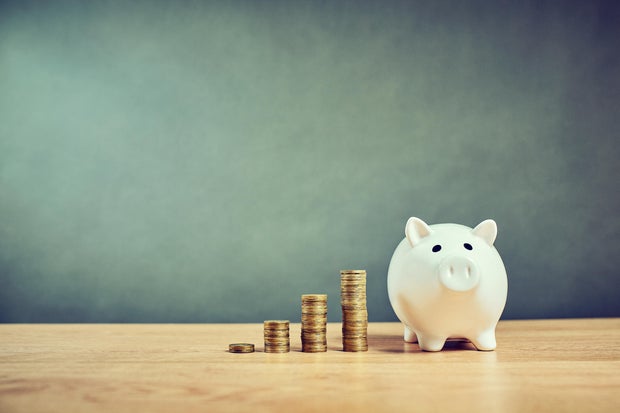A certificate of deposit (CD) is a type of savings account that requires you to deposit money for a set term. In exchange, the bank or credit union pays you interest—often higher than the rates paid on checking or savings accounts. The longer you agree to leave the money in the account, the higher the interest yield.
But are CDs worth it?
“It depends on the individual’s circumstances and goals. Generally speaking, though, there are a few key advantages to CDs that may make them worth considering for some people,” says Robert Donnelly, CFO of Marketplace Fairness.
You can easily check today’s CD interest rates to determine if it makes sense for you or use the table below to explore some local options.
Are CDs worth it?
CDs provide a low-risk way to earn as you save. Here’s a closer look at three key advantages they offer.
1. CDs are low risk
A big perk that comes with CDs is that they present low-to-no risk to the account holder.
Banks offer fixed interest rates so you receive a guaranteed amount if you leave your money in the account for the agreed-upon term. For example, if a one-year CD offers a 4% annual percentage yield (APY) and you deposit $5,000, you would earn $200.
“The investor knows exactly how much money they’ll earn on their investment, which can be helpful for budgeting and planning purposes,” says Donnelly.
Additionally, as long as you buy a CD from an institution that’s insured by the FDIC or NCUA, your account will be protected in the event of a bank failure (up to the allowable amounts).
2. CDs earn more interest than bank accounts
Another advantage of CDs is they tend to offer higher returns than a checking or savings account. According to the FDIC, the average national deposit interest rate for a checking account as of March 8, 2023, was 0.06%. A savings account was at 0.35% but a CD came in somewhere between 0.18% to 1.26%, depending on the term you select.
While these are the national averages, you can find much higher interest rates when shopping around. For example, Capital One is currently offering an 11-month Special CD with a 5.00% APY and no minimum deposit. The bank’s normal CD rates are considerably higher as well, ranging from 3.30% to 4.10% APY.
In comparison, Capital One’s high-yield savings account offers a 3.40% APY. In this case, the CDs offer higher returns as long as you agree to a term of at least 11 months. So be sure to shop around before opening a CD. You can easily explore your CD options online here or simply use the table below to get started.
3. CDs offer a variety of options
Banks and credit unions typically offer a lineup of CD terms that range from one month to five years or more. As a result, you can choose the term that best suits your situation and goals.
“For example, if you know you are buying a house in two years and the down payment is projected to be $40,000, you don’t want to risk this money in the stock or bond markets,” says Dave Carey, CFA and founder of WealthTrace.
He adds “Instead, you can buy a two-year CD with a guaranteed rate of return based on the interest rate at that time. At the end of two years, you’ll have access to the money with earned interest.”
You could also consider implementing a CD ladder strategy. With a traditional CD ladder, you split your investment between five CDs with terms ranging from one year to five years. Then, as your CDs mature each year, you reinvest the funds you don’t need into five-year CDs. Soon, you’ll have five CDs with five-year terms and one will mature each year.
Other considerations
While CDs can be great in some situations, there are a few potential drawbacks to consider.
“One drawback is that you may be charged a fee if you withdraw your money before the end of the term. Additionally, if interest rates rise during the term of your CD, you won’t be able to benefit from those higher rates unless you cash out and reinvest at the new rate (which may incur additional fees),” says James Allen, CPA and founder of BillPin.
It’s also important to consider the opportunity cost. Could you earn or save more elsewhere? While CDs often have higher APYs than interest-yielding bank accounts, they typically have lower returns than other investment options like stocks. Additionally, if you have high-interest debt, it could be more beneficial to use your funds to pay that off first. You’ll have to weigh the risks and benefits to decide which route is best for you.
Is a CD worth it right now?
A CD could be a worthwhile investment right now. With interest rates up, CD interest rates are also up. But it really comes down to your risk tolerance and budgetary needs.
“Generally speaking, CDs are a good idea if you’re looking for a safe place to invest your money and don’t mind keeping it locked up for a set period of time. However, there can be drawbacks – so make sure to do your research before investing in one,” says Allen.
Ready to get started? You can check your local CD offers online here now or by using the table below.

